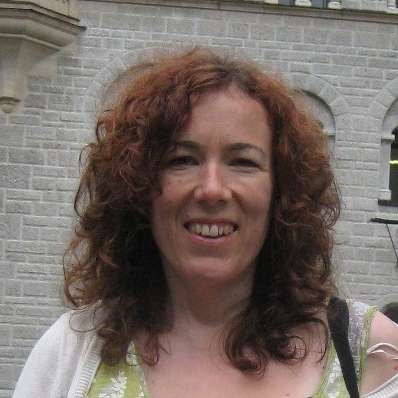Gloucestershire is rich in musical heritage; well-known composers connected with the county include Parry, Vaughan Williams and Howells, but one name that is less familiar these days is that of Howells’ friend Ivor Gurney. Gurney’s promising career as a composer was interrupted by World War I and the effects of the war on his mental health led to him being locked up in a mental hospital for the last fifteen years of his life, where he died, forgotten by many. Mezzo-soprano Sarah Connolly has championed Gurney’s music in recent years and tonight’s concert in Gloucester Cathedral was organised by her to raise money for a stained-glass window in his memory.
The 1910 world première of Vaughan Williams’ Fantasia on a Theme by Thomas Tallis in Gloucester Cathedral inspired both Howells and Gurney, who were there, to become composers. This evening’s performance by the English Chamber Orchestra was given extra poignancy set against readings by Simon Callow of Gurney’s homesick poetry written in the trenches, and it was played with exquisite sensitivity, blossoming from a delicate beginning to a darkly rich close.
The concert opened with a rare example of a choral work by Gurney; his setting of Since I believe in God the Father Almighty by Robert Bridges, sung by Tenebrae. Their clean style allowed Gurney’s inventive harmonies to shine through. Balancing this first, unfamiliar piece, Tenebrae then gave a robust performance of one of Howells’ best known anthems, Like as the Hart.
One thing that came through in the Simon Callow’s readings of Gurney’s poetry and letters was Gurney’s urgent need for music; in one letter from the trenches to Howells, he pleads for his friend, who couldn’t fight, to do double, to his (Gurney’s) share too. In the end one of Howells’ contributions to Gurney’s music was orchestrating some of Gurney’s vast output of songs, two of which were performed this evening, along with arrangements by Gerald Finzi and Jeremy Dibble. The orchestrations of Gurney’s intense piano parts changed the feel of the songs, but what was lost in intimacy was made up for in the illumination of the texts. Bass Neal Davies gave a stirring performance of In Flanders and Sarah Connolly poured all her passion for Gurney into a moving performance of Sleep and By a Bierside, probably his two best-known songs. Finzi’s arrangement of Sleep added a new layer of sensuousness to this dreamy song, whilst Howell’s orchestration of By a Bierside used dark brass timbres to underline the fear of death expressed in the poem. The song ends with a strange turnaround, as the poet conquers death’s horrors and proclaims “it is most grand to die”; here the orchestra steps back, allowing Gurney’s powerful vocal line to dominate, ending with a breathtakingly long note. Despite the emotion and commitment Sarah Connolly had put into both songs, she still had something in reserve for this ending.
All the performers came together at the start of the second half for a lengthy extract from the first part of Mendelssohn’s Elijah. I’m told that Gurney had sung the treble solo as a chorister at Gloucester; his successor this evening from the cathedral choir was Edward Chan whose voice had all the lovely purity of the best trebles, but also considerable power. Tenebrae and the English Chamber Orchestra played their parts with dynamism and excitement, whilst Neal Davies exuded magnificent authority singing the part of Elijah.
Composer Judith Bingham was commissioned to write a piece based on Gurney’s poetry for this concert, and the result, A Walk with Ivor Gurney for choir and mezzo-soprano solo, was inventive and magical. Instead of just taking one text, she wove together several poems in which Gurney contemplates not just his beloved Gloucestershire countryside, but the Roman soldiers who once lived there: the soldiers themselves being summoned up by the male voices of the choir, hidden up in the organ loft, singing Latin inscriptions from the soldiers’ tombs. The women’s voices evoked the night time landscape with spooky descending motives, and incredibly resonant humming whilst Sarah Connolly’s sinuous solo line, blending in and out of the accompanying voices brought the ghostly soldiers and the landscape together.
The programme ended with two more recent Gurney song arrangements, by Jeremy Dibble. Bright Clouds sparkled with woodwind colour, and provided a moment of optimism before the final darkness of Lights Out, another ambiguous reflection on death that offered a lovely complement to the passion of By a Bierside. Gloucester Cathedral’s Director of Music, Adrian Partington, who shared the conducting with Nigel Short, declared that rather than finish on such a sombre note, they would give us one last taste of summer; the encore was the part-song The Bluebird by Gurney’s teacher, Charles Stanford, sung very quietly, with immaculate control by Tenebrae.


